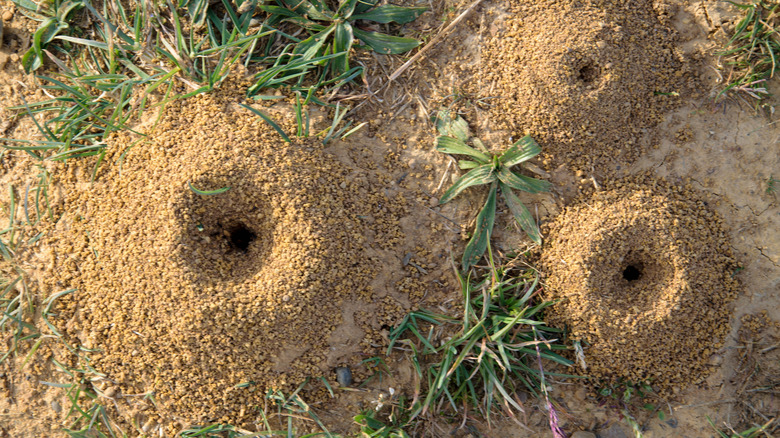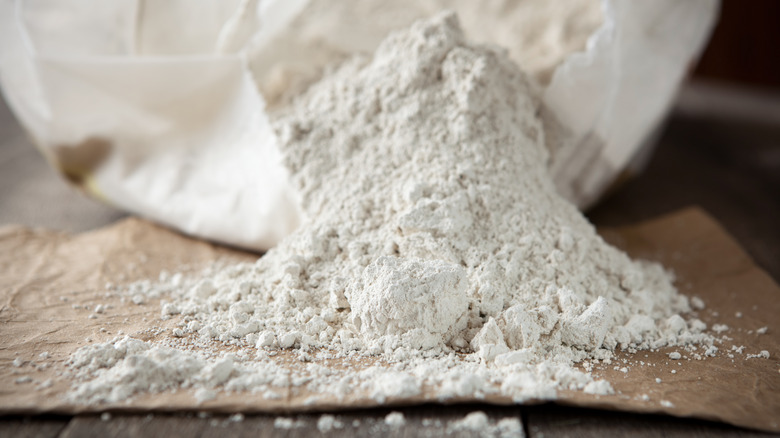Why You Should Think Twice Before Pouring Boiling Water Over Ant Hills In Your Yard
Most people rush to remove ant hills from their yards, and for good reason. Not only do they ruin the clean aesthetic of your lawn, but they can hurt the grass by destroying the roots and suffocating nearby grass blades. This causes people to reach for time-honored, mound-destroying tactics, such as pouring boiling water over ant hills. However, you may want to think twice before doing so. Just like how ant hills can harm your surrounding grass, so can the hot water.
If you're not careful where you're pouring the water, you can burn the surrounding turf around the ant hill, damaging it irrevocably. After all, you can use boiling water to kill weeds, so the same idea applies here. This is especially true when pouring it out of a pot or bucket, where the stream is more challenging to control. You'll also need a lot of water in order to kill the entire colony, so you will likely need to pour the boiling liquid more than once, increasing your risk of killing nearby vegetation.
Alternative methods to destroying ant hills without damaging the grass
The best way to get rid of an ant hill without harming your lawn is to use diatomaceous earth. This is an all-natural, food-safe powder made from diatoms. It might look as harmless as flour to the naked eye, but if you put it under a microscope, you will see it's made of millions of jagged, sharp pieces. These shard-like granules will cut the ants' exoskeleton, eventually dehydrating and killing them. To use diatomaceous earth, simply sprinkle it around and in the ant hill, destroying the colony. You might have to pour the powder several times before the ant hill is deserted, especially if it rains or there are strong winds.
For best results, be sure to get the food-grade version to ensure there are no extra additives or chemicals in the product. This is especially important if you are trying to remove an ant hill near your vegetable garden, ensuring it won't contaminate the soil. You also want to wear protective gloves and a face mask when handling it since it can irritate your airways or skin, as per the Centers for Disease Control and Prevention (CDC).

